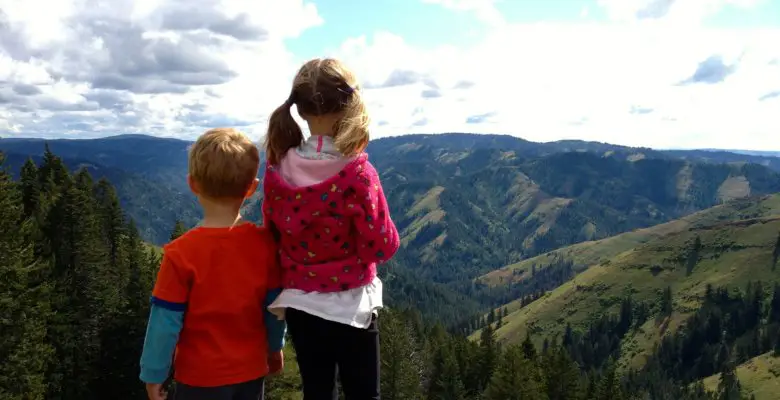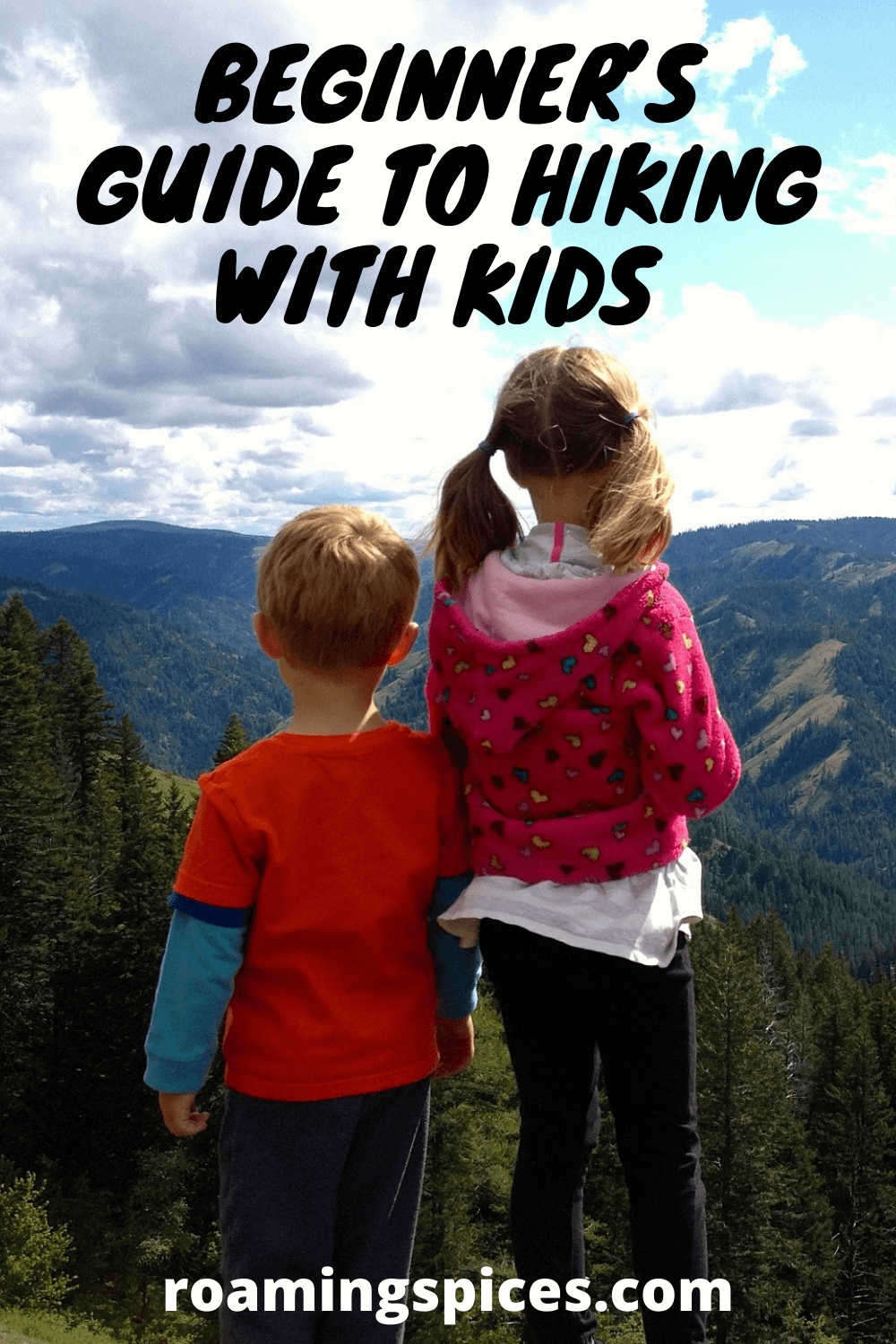
Hiking with Kids
Hiking is an amazing pastime and sharing these experiences with children can have lasting benefits. Our useful guide on hiking with kids should set you on the right track
Important Things to Consider When Hiking With Children
For those of us who love exploring the great outdoors on foot, there are few things more exciting than the prospect of taking your child on their very first hike.
Hiking is more than exercise. It’s a chance to explore, to refresh yourself, to connect with the world we live in, and understand more about the land, whether it’s near or far from home. It’s also a chance to connect with those around us.
I’ve had more (and longer) conversations with family members on hikes than anywhere else. With that in mind, it’s no surprise that experienced hikers want to share the thing they love the most with the people they love the most.
And it’s also no surprise that novices look to hiking as a new activity to do with their kids.
When it comes to taking them on their first hike, there’s no right answer. Some believe you should get out as soon as possible, while others think you’re better off settling into some kind of routine first.
We’ve put together this guide to help you along the way and give you the information you need before you set off on your first hike with a little one.
1 – Carrier
Having a good carrier is essential for keeping your baby or toddler safe, and keeping you comfortable.
Babies should be placed in rear-facing carriers from birth until around six months of age. A good rear-facing carrier will cost anything from £30-100 and should offer a padded, sturdy structure with a wide, comfortable seating position. Although a relatively safe activity, hiking does carry some risk so it’s best to avoid wrap carriers due to the lack of protection.
For babies older than six months and toddlers, a full backpack carrier is definitely the best option. Costing anything from £80-250, you should be looking out for durable materials, five-point harnesses, thick and comfortable straps, a padded cushion for when they doze off, and integrated storage.
Try to find a balance between sturdiness and weight; too heavy and the extra weight will start to take its toll on longer hikes, too light and you run the risk of it being flimsy.
Quick tip – the snugness of a carrier (front or back) and the motion of walking tends to send them off to sleep, so you might want to time your hikes with their naps!
2 – Walk and explore
If the terrain is suitable and your toddler is old enough to walk then they definitely should. By all means, take a carrier for when they get tired or you’re going through a tougher or more dangerous section, but let them roam and explore.
It helps children to build confidence, encourages creativity and imagination, allows them to think, and teaches responsibility. Walking at least some of the hike themselves will help to immerse them in the enjoyment and the experience of hiking with their parents.
“Discover all the amazing benefits that hiking can bring you”
With that in mind, a good pair of hiking boots or shoes are a worthwhile investment. The comfort, support, protection and grip provided by purpose-made hiking footwear will ensure your child is safer and more comfortable for the whole journey.
Prepare to slow down while they’re walking, too. Chances are your little one will be interested in absolutely every single rock, stick, leaf, bug, and just about anything else they can spot – a scavenger hunt is a great way to keep them interested in the walk.
3 – Planning is crucial
Researching your route is key to making sure you and your child are safe. You need to know if there are any sections of the hike that make it unsuitable for little ones – sheer drops, deep muddy patches. These are the things you need to know about your route before you set off. The best thing you can do is choose family-friendly routes.
Don’t push it too hard when it comes to distance, either. When hiking with kids, the main goal is for your child to enjoy the experience, and a really long hike runs the risk of them getting bored and not wanting to go again.
Be mindful of the weather, too. You might be willing to take the risk on that 50% chance of sudden heavy downpours towards the end of your hike, but it’s not worth the risk when it could end with your child soaked to the skin a few miles from the car or shelter.
4 – Supplies
This is where a backpack carrier comes into its own thanks to storage compartments. Here are a few essentials you’ll need for most hikes, even shorter ones:
- Plenty of drink
- Food
- Spare nappies and wipes
- Sun cream
- Hats
- Raincoat/fleece
Whatever the situation, you don’t want to get caught without any of these. We’d also recommend packing the night before. The last thing you want to do is rush it an hour before you leave. You’ll end up tiring yourself out before you’ve even started the hike and probably forget something, too.
5 – Engage and enjoy
Once you’ve done everything possible to make this hike as safe as possible for your child, this is perhaps the most important point.
Whether you’re setting off from home, travelling to your starting point, or tying a hike in with a camping trip. You’re taking them along to spend quality time with them. You’re taking them on an adventure to explore new places and to explore nature.
They’re only going to truly enjoy hiking with you if you fully engage with them (while they’re awake, that is!). Talk to them about the surroundings, point out the hills in the distance, that oddly-shaped tree, the bird in the sky.
While they’re out of the carrier, help them climb the bigger rocks and see who can find the biggest stick, feel the flow of the river. Ask them what they’re enjoying about the hike, ask them what they’re not keen on – it’ll help you to create a more enjoyable experience next time.
In fact, don’t go into the hike with any expectations other than having fun. You might take much longer to get to your destination, you might not even get there. Your only goal should be to have fun with your children.
6 – Don’t give up
This is an important one because not every child will instantly fall in love with hiking. For whatever reason, your first hike may be a total disaster. A bad night’s sleep could leave your toddler tired and grumpy, whinging the whole way. It doesn’t mean they won’t have a blast next time.
Keep at it. Even when you’ve taken your little one out on plenty of hikes, some of them probably won’t be a great deal of fun, but most of them will be wonderful. Keep going and get walking. It’ll pay off in the long run.
Hiking with Kids – Conclusion
Some of these points may seem a little obvious, but any experienced hiker will tell you how easy it is to underestimate a hike. And underestimating a hike when you’re taking children can lead to serious consequences.
Follow these points and you and your child will not only have a safe hike but an enjoyable one, too.
Happy Hiking!
Like Our Article? Please Pin it!


Leave a Reply